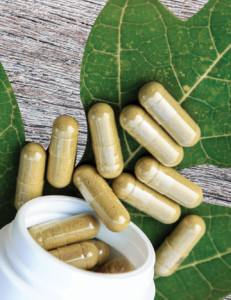
In July 2024, BMC Medicine’s editorial office retracted a 2013 study which used DNA barcoding analysis to test 44 herbal products.
“The Editor has retracted this article. An investigation by the University of Guelph has found evidence of data fabrication in relation to this article. The Editor therefore no longer has confidence in the presented data,” the journal wrote.
The study was led by Dr. Steven Newmaster, a botanist and professor at the University of Guelph in Ontario, Canada. He also co-authored a 2014 study on vegetation surveys in Biodiversity and Conservation that was retracted in 2021 due to “data and reproducibility concerns.” Newmaster did not return requests for comment.
The university responded in a statement: “The University of Guelph expects the highest standards of integrity in every aspect of research carried out by all members of U of G’s academic community. We take our responsibility to uphold all principles of research integrity very seriously. The University of Guelph Responsible Conduct of Research Policy is applicable to all researchers at U of G including faculty, staff, students and others. This policy defines both the responsibilities of researchers in upholding the highest standards of research integrity and what constitutes research misconduct. We can confirm the University of Guelph has recently completed an investigation into allegations of research misconduct. The investigation committee’s final decision has been communicated in confidence to the relevant parties and as per our policy requirements.”
In his 2013 study, Newmaster determined many of the herbal products were of poor quality, contaminated, adulterated, used fillers or used substitutions. He also encouraged the use of DNA barcoding for authenticating herbal products. The natural products industry lambasted Newmaster for his flawed methodology and for not contacting companies before testing their products.
News of the study was published in The New York Times where it caught the attention of then-New York Attorney General Eric Schneiderman.
“Between 2013 and 2015, what the industry did not know was that [Schneiderman] went back to Dr. Newmaster and hired him as a consultant to go back and do another round of testing using this same methodology,” said Steve Mister, president and CEO of the Council for Responsible Nutrition (CRN).
In 2015, Schneiderman led a controversial investigation into the quality and integrity of herbal products, which was also published in The New York Times.
“He did a sting operation on these products and then released it to the press without giving the companies a chance to respond,” Mister said. “We saw a dip in consumer confidence right after that and so we had to rebuild all that consumer trust for, as we now know, something that really was not well-supported.”

Two industry scientists said the retraction was long overdue and explained the flaws of DNA barcoding.
Gene Bruno, MS, MHS, RH(AHG), chief scientific officer at Nutraland USA (Irvine, CA) and host of The Vitamin Professor podcast, explained that DNA barcoding is an analytical method for identifying specimens, in this case plants, using short, standardized segments of DNA.
“Since every species has its own barcode, just as every person has their own fingerprint, in theory these DNA barcodes can be compared to a reference library to provide an ID,” Bruno said. “I say ‘in theory’ because there are some serious limitations with how DNA barcoding is sometimes used in identifying certain herbal products.”
Jim Roza, chief scientific officer at China-based Layn Natural Ingredients, added the research “failed miserably” because many of the samples came from purified extracts with little to no DNA and were mixed with other ingredients.
“While new methods of identifying botanicals are welcomed by the industry if validated properly, nothing takes the place of having true, authenticated herb samples that have been qualified by a botanist using macroscopic and microscopic analysis that has full traceability from its original source to the finished product,” Roza said.
Mister added, “The way we explained it is when consumers are taking an herbal dietary supplement, they’re not taking the product for the DNA that was in the plant. They’re doing it for all the bioactive compounds, the phytonutrients and those sorts of things that are in the herb. The very basic flaw in this is that if you’re doing an extraction, you’re not expecting to get DNA.”

American Herbal Products Association (AHPA) and Natural Products Association (NPA) also responded to the retraction.
“As we pointed out at the time of its publication, Dr. Newmaster’s article contained significant inaccuracies, including the false claim that no best practices exist for identifying herbal ingredients, contrary to FDA regulations,” said AHPA President Michael McGuffin. “Furthermore, the premature endorsement of DNA barcoding without acknowledging its limitations misled readers. Though long overdue, the retraction of this erroneous article underscores the importance of accuracy and integrity in scientific reporting.”
Daniel Fabricant, PhD, president and CEO of NPA, stated, “This retraction cannot undo the damage to our industry’s integrity. Time after time, baseless studies like these and claims of the industry being unregulated and unscientific are propagated by those who are ignorant about the industry and about the science behind it. In fact, I was just visiting a manufacturing facility where they do over 30,000 scientific tests a month. More concerning though is the apathy through the industry—this was an unscrupulous political attack at the heart of the industry in 2013—we said that at the time—we also said there will be more by the states—unfortunately we’ve been proven right because too many have sat on the sidelines or are in their feelings about the personal politics versus what will keep us in business and thriving. The future can be bright if more get in the game. At the going rate the states will eventually strike a blow that does considerable damage. We’re supposed to be all about prevention—time to practice what we preach.”


